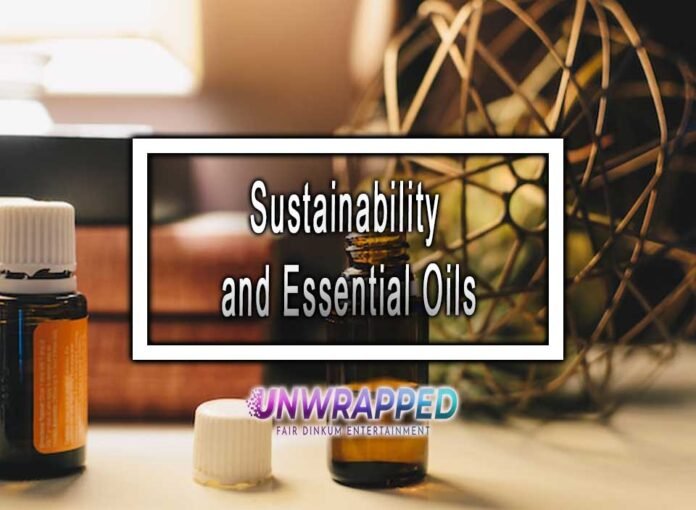In today’s world, the pursuit of sustainability has become increasingly important. As we strive to reduce our ecological footprint and protect the planet for future generations, sustainable practices have found their way into various aspects of our lives, including the products we use. Essential oils, known for their various therapeutic benefits, are no exception to this trend.
The Essence of Essential Oils
Before we dive into the sustainability aspect, let’s go over what essential oils are. Young Living Essential oils are concentrated extracts derived from plants, capturing the essence, aroma, and therapeutic properties of the plant from which they are derived. These oils have been used for centuries in various cultures for their medicinal, cosmetic, and aromatic benefits.
Ethical Sourcing
One of the fundamental pillars of sustainability in essential oil production is ethical sourcing. Many companies now prioritize working with farmers and suppliers who employ ethical and environmentally responsible practices. This ensures that the cultivation and harvesting of the plants used for essential oils do not harm the environment or exploit local communities.
Organic Farming
Organic farming practices are another crucial component of sustainability in essential oil production. By avoiding synthetic pesticides and fertilizers, organic farming protects both the environment and the health of those working in the fields. Organic farming also promotes biodiversity and healthy ecosystems, which are essential for the long-term well-being of the planet.
Responsible Harvesting
The responsible harvesting of plants for essential oils is critical to prevent over-exploitation and the depletion of natural resources. Sustainable harvesting practices involve careful consideration of the plant’s growth cycle, avoiding over-harvesting, and allowing time for the plant populations to regenerate.
Conservation Efforts
Many essential oil companies are now actively involved in conservation efforts aimed at protecting endangered plant species. By supporting these initiatives, consumers can contribute to the preservation of biodiversity while enjoying the benefits of essential oils.
Eco-Friendly Packaging
Sustainability doesn’t stop at the production of essential oils; it extends to packaging as well. Many eco-conscious companies have transitioned to eco-friendly packaging materials. Glass bottles, which are recyclable and reusable, are a popular choice for essential oil containers. Additionally, some companies are experimenting with biodegradable or recyclable labels and caps, reducing the overall environmental impact of their products.
Reduced Carbon Footprint
Transportation plays a significant role in the carbon footprint of essential oil products. Sustainable companies often source their raw materials locally or regionally to reduce the distance traveled during transportation. Some companies even offset their carbon emissions by investing in reforestation or renewable energy projects.
Upcycling and Recycling
Consumers can also contribute to sustainability by upcycling or recycling essential oil bottles and packaging. Empty glass bottles, for example, can be cleaned and reused for DIY essential oil blends or other purposes. Proper disposal of packaging materials according to recycling guidelines further reduces waste.
Supporting Fair Trade Practices
Choosing to support essential oil companies that practice fair trade principles ensures that workers involved in the production process are treated fairly and receive fair compensation for their labor. Fair trade principles often go hand-in-hand with sustainability efforts, promoting social and economic equity in addition to environmental responsibility.
The Benefits of Sustainable Essential Oils
Aside from the positive environmental and ethical aspects of sustainable essential oils, they also offer a range of benefits for consumers. Sustainable practices often lead to higher-quality products. Here are some reasons why sustainable essential oils are a wise choice:
Purity and Potency: Sustainable farming practices and careful extraction methods contribute to the purity and potency of essential oils, ensuring that you receive the maximum therapeutic benefits.
Aromatherapy Benefits: Sustainable essential oils retain their natural fragrance, allowing you to enjoy the full aromatherapeutic experience.
Health and Well-being: High-quality essential oils derived from sustainable sources are more likely to possess the medicinal properties they are known for, promoting your health and well-being.
Sustainable Essential Oils
The journey towards sustainability is an ongoing and collective effort. As consumers, we have the power to make conscious choices that promote environmental responsibility and ethical practices. Sustainable essential oils offer a wonderful opportunity to integrate these principles into our daily lives, benefiting not only ourselves but also the planet we call home. By supporting companies that prioritize sustainability in their production processes and packaging, we can be part of a greener, healthier, and more ethical future. So, the next time you reach for that bottle of essential oil, remember that your choice can make a difference in the world.










